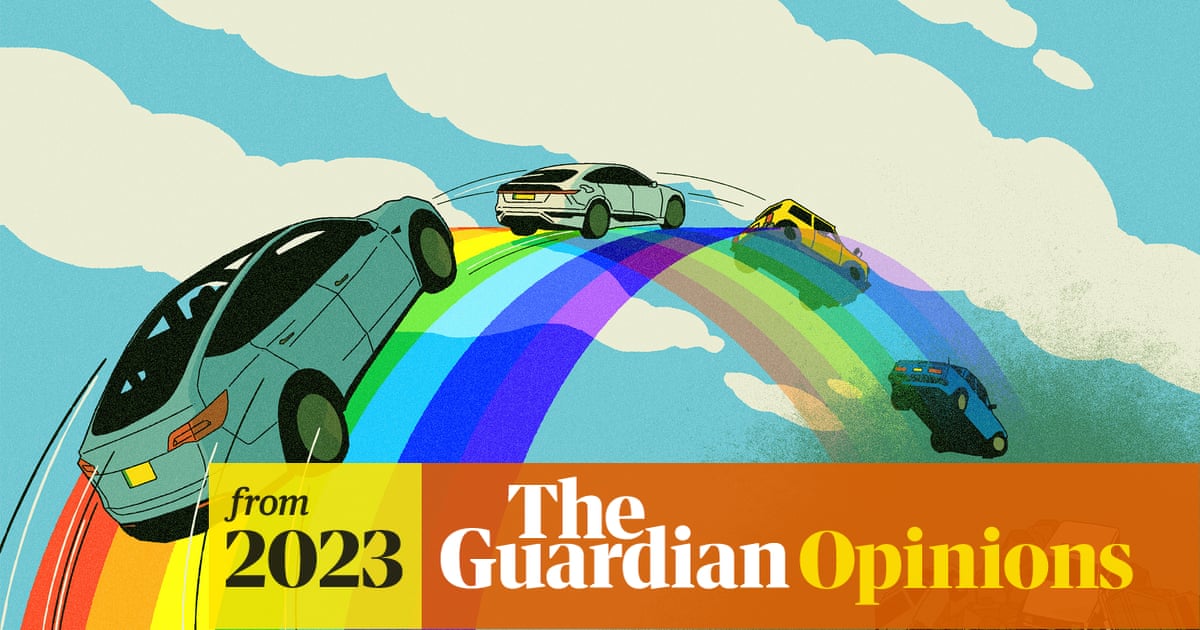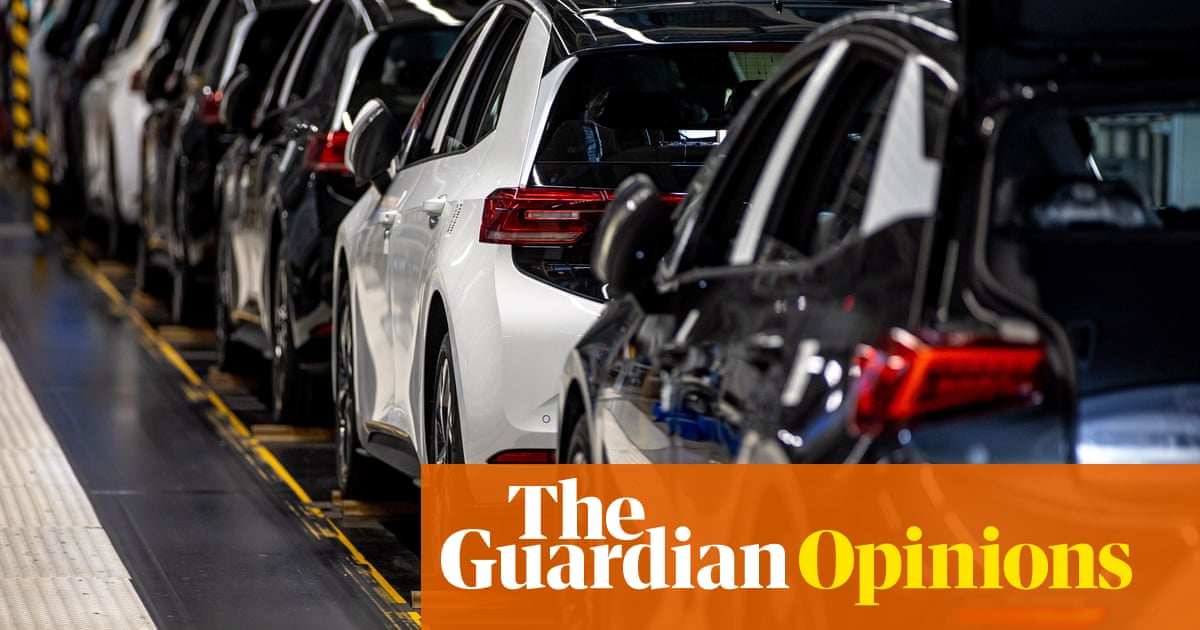Rowan Atkinson
Electric motoring is, in theory, a subject about which I should know something. My first university degree was in electrical and electronic engineering, with a subsequent master’s in control systems. Combine this, perhaps surprising, academic pathway with a lifelong passion for the motorcar, and you can see why I was drawn into an early adoption of electric vehicles. I bought my first electric hybrid 18 years ago and my first pure electric car nine years ago and (notwithstanding our poor electric charging infrastructure) have enjoyed my time with both very much. Electric vehicles may be a bit soulless, but they’re wonderful mechanisms: fast, quiet and, until recently, very cheap to run. But increasingly, I feel a little duped. When you start to drill into the facts, electric motoring doesn’t seem to be quite the environmental panacea it is claimed to be.
As you may know, the government has proposed a
ban on the sale of new petrol and diesel cars from 2030. The problem with the initiative is that it seems to be based on conclusions drawn from only one part of a car’s operating life: what comes out of the exhaust pipe. Electric cars, of course, have zero exhaust emissions, which is a welcome development, particularly in respect of the air quality in city centres. But if you zoom out a bit and look at a bigger picture that includes the car’s manufacture, the situation is very different. In advance of the Cop26 climate conference in Glasgow in 2021, Volvo released figures claiming that greenhouse gas emissions during production of an electric car are
70% higher than when manufacturing a petrol one. How so? The problem lies with the lithium-ion batteries fitted currently to nearly all electric vehicles: they’re absurdly heavy, many rare earth metals and huge amounts of energy are required to make them, and they only last about 10 years. It seems a perverse choice of hardware with which to lead the automobile’s fight against the climate crisis.
Unsurprisingly, a lot of effort is going into finding something better. New, so-called
solid-state batteries are being developed that should charge more quickly and could be about a third of the weight of the current ones – but they are years away from being on sale, by which time, of course, we will have made millions of overweight electric cars with rapidly obsolescing batteries. Hydrogen is emerging as an interesting alternative fuel, even though we are slow in developing a truly “green” way of manufacturing it. It can be used in one of two ways. It can power a hydrogen fuel cell (essentially, a kind of battery); the car manufacturer Toyota has poured a lot of money into the development of these. Such a system weighs half of an equivalent lithium-ion battery and a car can be refuelled with hydrogen at a filling station as fast as with petrol.
If the lithium-ion battery is an imperfect device for electric cars, it’s a complete non-starter for trucks because of its weight; for such vehicles hydrogen can be injected directly into a new kind of piston engine. JCB, the company that makes yellow diggers, has made huge strides with hydrogen engines and hopes to put them into production
in the next couple of years. If hydrogen wins the race to power trucks – and as a result every filling station stocks it – it could be a popular and accessible choice for cars.
But let’s zoom out even further and consider the whole life cycle of an automobile. The biggest problem we need to address in society’s relationship with the car is the “fast fashion” sales culture that has been the commercial template of the car industry for decades. Currently, on average we keep our new cars for only three years before selling them on, driven mainly by the ubiquitous three-year leasing model. This seems an outrageously profligate use of the world’s natural resources when you consider what great condition a three-year-old car is in. When I was a child, any car that was five years old was a bucket of rust and halfway through the gate of the scrapyard. Not any longer. You can now make a car for £15,000 that, with tender loving care, will last for 30 years. It’s sobering to think that if the first owners of new cars just kept them for five years, on average, instead of the current three, then car production and the CO2 emissions associated with it, would be vastly reduced. Yet we’d be enjoying the same mobility, just driving slightly older cars.
We need also to acknowledge what a great asset we have in the cars that currently exist (there are
nearly 1.5bn of them worldwide). In terms of manufacture, these cars have paid their environmental dues and, although it is sensible to reduce our reliance on them, it would seem right to look carefully at ways of retaining them while lowering their polluting effect. Fairly obviously, we could use them less. As an environmentalist once said to me, if you really need a car, buy an old one and use it as little as possible. A sensible thing to do would be to speed up the development of synthetic fuel, which is already being used in motor racing; it’s a product based on two simple notions: one, the environmental problem with a petrol engine is the petrol, not the engine and, two, there’s nothing in a barrel of oil that can’t be replicated by other means. Formula One is going to use
synthetic fuel from 2026. There are many interpretations of the idea but the German car company Porsche is
developing a fuel in Chile using wind to power a process whose main ingredients are water and carbon dioxide. With more development, it should be usable in all petrol-engine cars, rendering their use virtually CO2-neutral.
Increasingly, I’m feeling that our honeymoon with electric cars is coming to an end, and that’s no bad thing: we’re realising that a wider range of options need to be explored if we’re going to properly address the very serious environmental problems that our use of the motor car has created. We should keep developing
hydrogen, as well as synthetic fuels to save the scrapping of older cars which still have so much to give, while simultaneously promoting a quite different business model for the car industry, in which we keep our new vehicles for longer, acknowledging their amazing but overlooked longevity.
Friends with an environmental conscience often ask me, as a car person, whether they should buy an electric car. I tend to say that if their car is an old diesel and they do a lot of city centre motoring, they should consider a change. But otherwise, hold fire for now. Electric propulsion will be of real, global environmental benefit one day, but that day has yet to dawn.
Sadly, keeping your old petrol car may be better than buying an EV, says actor Rowan Atkinson

www.theguardian.com
/cloudfront-us-east-2.images.arcpublishing.com/reuters/O2LSTEYZDJP2FCJQKVIY4D5MMI.jpg)
 www.reuters.com
www.reuters.com
/cloudfront-us-east-2.images.arcpublishing.com/reuters/O2LSTEYZDJP2FCJQKVIY4D5MMI.jpg)


